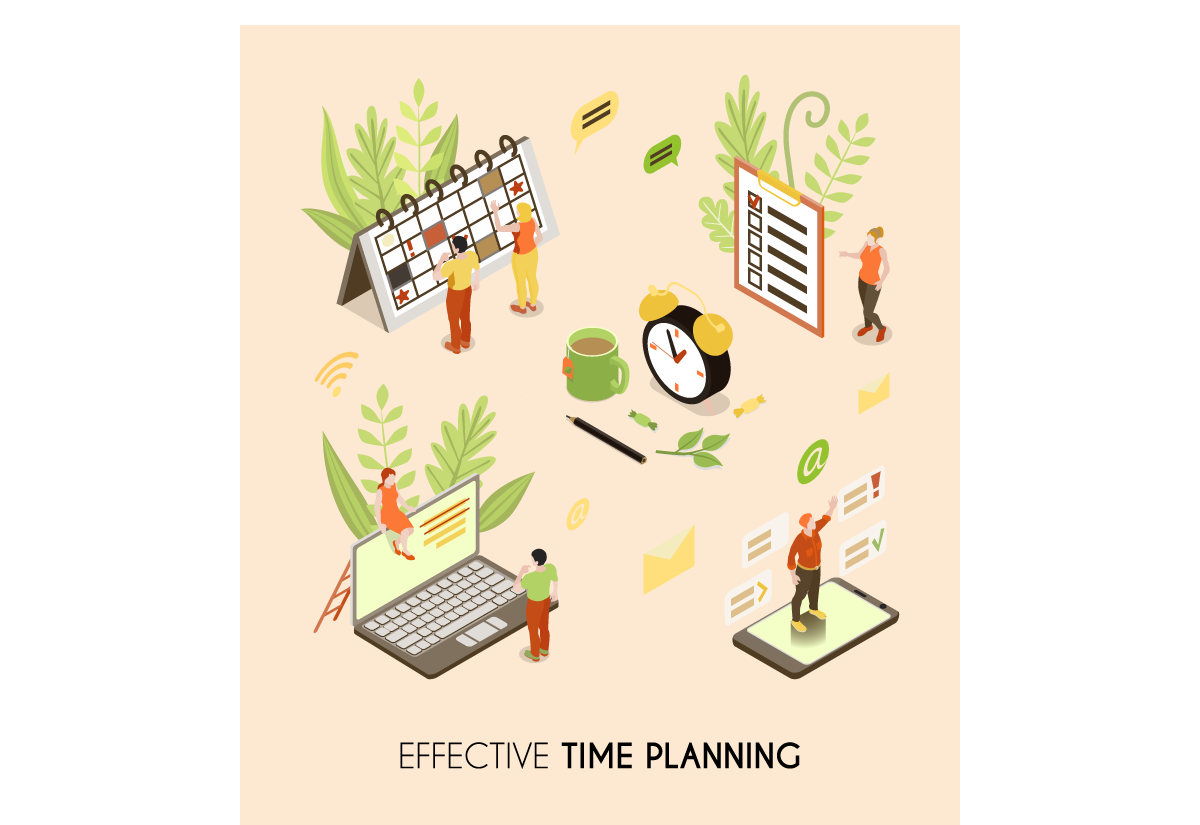9 Best Practices For Entering the Remote Workforce
The world is going remote, and you can too! Follow these best practices for entering the remote workforce, and gain a competitive edge to land your dream role:

There’s no need to stress about entering the remote workforce.
Sure, COVID-19 lockdowns meant an abrupt shift from office positions to those in the virtual world. But now that employers and employees have made the transition, there may be no use in going back.
After all, employers save money, increase diversity, and score a ton of other benefits when hiring a remote workforce. Employees also experience higher productivity levels and a killer work-life balance.
Despite these perks, if you’re a recent graduate or changing jobs for the first time in a while, entering the remote workforce may seem more scary than exciting.
How do you find remote jobs? Do my skills make up for a lack of remote work experience? How do I compete with top talent from all over the world vying for the same positions?
Take a deep breath, and keep reading to uncover a few answers and ideas in today’s guide.
9 Best Practices for Entering the Remote Workforce
These tips and best practices for entering the remote workforce will help you land and grow in your dream career:
#1. Determine What You’re Actually Looking For
Rather than "blind-applying" to a million jobs, you should preference- and skill-match during your job search. Pinpoint exactly what you want and what you’re qualified for, and you’ll save time searching and speed up the process.
To create a list of what you’re looking for in a remote position, think about:
- How many hours you can work (part-time, full-time, contract)
- The specific hours you’re able to work
- Which time zones you work best in
- Job titles you have/want to have
- Education/certifications required for the position
- Necessary experience required (i.e., entry-level or C-suite)
- Whether you prefer to primarily work solo or in a team
- Employee benefits you may need
Keep this list handy and updated as you learn more about which remote positions pique your interests.
#2. Stick to a Schedule
Remote employees don’t always work traditional 9-to-5 hours. Many get to choose their work hours based on when they’re most productive. So you should start practicing time management skills now to see how self-scheduling works for you.

This exercise comes with many advantages:
First, sticking to a schedule will get you in the habit of a steady remote work routine. And your roommates and family members will get used to leaving you alone during work hours. These are both helpful to master before you’re officially working.
Plus, creating a schedule or specific window of time to devote to job searching will help you better manage the stress and anxiety that come with it. Job hunting depression is real. And you need time away for self-care, recharging, and social activities.
#3. Fake It Till You Make It
You won’t feel like a potential remote worker if you’re filling out applications on the couch in your pajamas every day. So part of banishing imposter syndrome is acting the part.
After creating your work from home schedule, get dressed in something comfortable yet professional. Create your own flexible workspace with a clutter- and distraction-free desk or table and ergonomic chair (ideally near a window). Make some coffee or tea, play music or ambient sounds to focus, and search for positions like it’s your job.

This is also an ideal time to become familiar with the most popular remote tools and software used by your peers. Download or watch tutorials on how to use Slack, Trello, Basecamp, Google Drive, Dropbox, Zoom, and more.
By the time you land your new remote gig, you’ll be a pro at using these and managing distractions.
#4. Skill Up and Upskill Your Resume and Cover Letter
If you lack remote work experience, highlight transferable skills you have relevant to the position you’re applying for. Make these the star of your resume and cover letter — and impossible to ignore.
How do you know which skills hiring managers are looking for? Check out the keywords used in their remote job ads. Copy each skill you possess (be honest!) and paste them in your cover letter and resume.
Must-have remote skills often include:
- Stellar written communication
- Time management
- Collaboration
- Organization
- Self-motivation
- Ability to work independently
- Tech literacy
Wish you had more to offer? Take this time to upskill!
Job seekers looking to upskill can find free resources at: Coursera, LinkedIn Learning, Khan Academy, edX, and many more sites.
#5. Optimize Your Professional Online Presence
Expect hiring managers and decision-makers to Google you before they reach out. And since you may never meet anyone from a remote company in person, it’s crucial to make a stellar first impression online.
To compete with the global talent pool and put your best foot forward, optimize your professional social media profiles to reflect your accomplishments, skills, interests, and work history.

Use a professional headshot, write a short-yet-compelling bio, and add visible contact details. Don’t forget to update your LinkedIn profile to let employers and recruiters know you’re interested in new opportunities.
To go the extra mile, consider creating a personal website — especially if you work on digital projects or campaigns. These case studies go a long way to prove you have the goods versus telling hiring managers you’re capable.
#6. Make the First Connection
Stats show up to 85% of jobs are filled via networking. And lucky for you, it’s never been easier or faster to network remotely.
Now you can bypass the awkward conversations and stale crudité at mixers to connect with the people and companies you’re drawn to.
To get your networking game up to par:
- Follow companies you admire or wish to work for on social media
- Reach out to current employees to ask for advice/recommendations
- Connect directly with hiring managers and recruiters
- Ask people in your network to introduce you to potential connections
Reach out on Twitter and LinkedIn to show initiative. It only takes a simple message or email to get your foot in the door. And you never know where this connection may lead.

You should also try to network with other remote professionals in social communities such as:
- Work From - An online watercooler for those who work from home
- Digital Nomads - For remote workers trekking the globe
- Creative Tribes - Startup marketers, entrepreneurs, and creatives
- Online Geniuses - A group of over 7,000 digital marketers
- #devchat - More than 14,000 developers helping each other learn and grow
- Women in Technology - A safe, confidential space for working women to chat and support each other
#7. Know Where To Look for the Best Remote Jobs & Sign Up for Job Alerts
Skip the giant job boards you see advertised. These focus on in-house positions and don’t cater to remote work. Be careful about work from home jobs found on Craigslist and Facebook, too, as they’re more likely to be scams or MLM schemes.
Instead, get in the habit of browsing employment sites just for remote work opportunities.

But with everyone glued to their devices 24/7, you can bet choice remote positions get snatched up fast. Job alerts help you climb to the top of the hiring queue with email notifications as soon as relevant jobs get posted.
Update your resume and cover letter, so when you’re the first to hear about new job postings in your field, you’re also the first to apply. Sign up to receive daily updates straight sent to your inbox and subscribe to the news letter at the home page at: https://itjobsfromhome.com.
#8. Prepare for Virtual Interviews
Almost all remote interviews happen over video conferencing apps like Zoom and Skype. Download these (or the specific video app chosen by your interviewer) to get familiar with how they work beforehand.
Check that both your camera and microphone work by making a test call to a friend. Make sure your on-camera background isn’t messy or distracting. Pick out a go-to professional interview outfit that shows up well on screen.

All this preparation means fewer headaches the day of your interview and more time to practice.
Be prepared to answer common remote interview questions such as:
- Have you ever worked remotely?
- What makes you a good fit for a remote position?
- What’s your communication style?
- What’s a secret you use to avoid distractions?
- What hours do you normally work?
- Where do you prefer to work?
- Will you work well with a distributed team?
- How do you rate your tech skills?
Always send a thank-you note to your interviewer after your call. Then, practice patience as hiring managers are usually ultra-busy and may not respond ASAP. Follow up a few times (if necessary) without being pushy.
#9. Partner with a Remote Work Leader
Preparation is key to landing your dream remote role. Follow all nine of these best practices for entering the remote workforce, and you’ll have a seamless transition and win a major competitive advantage.